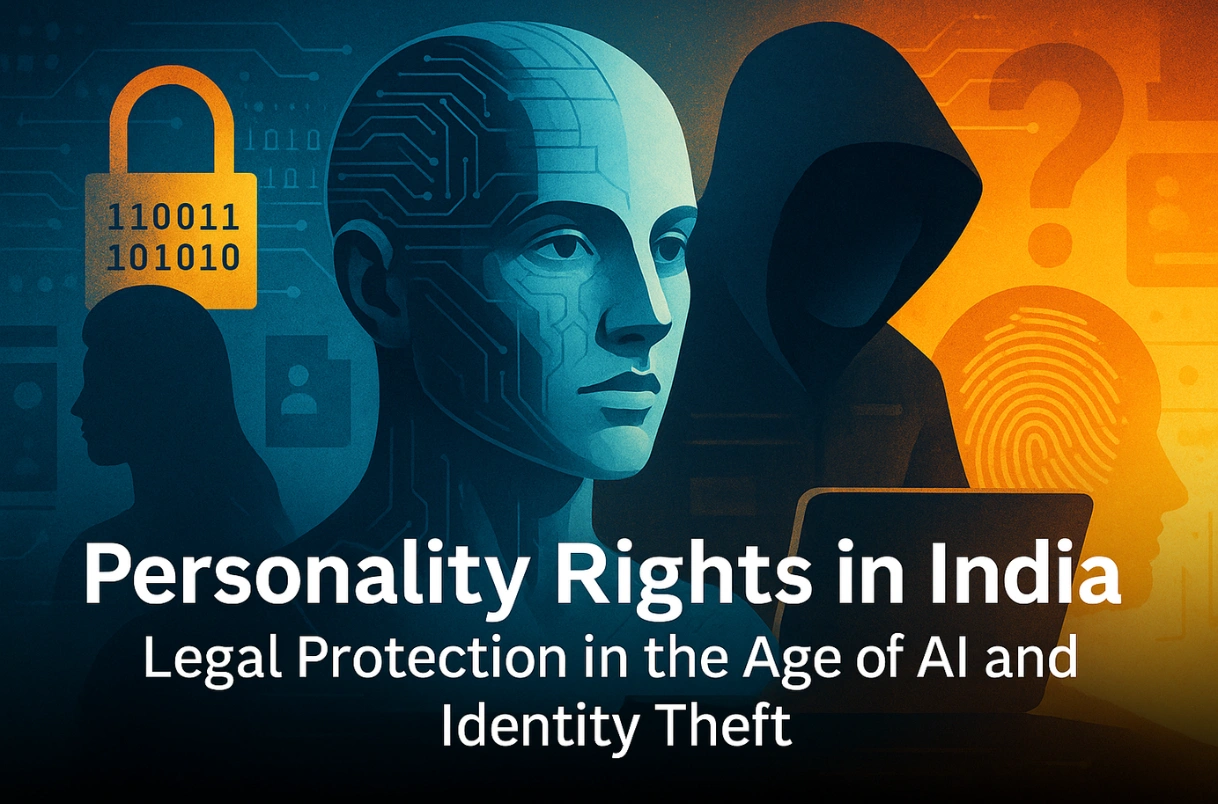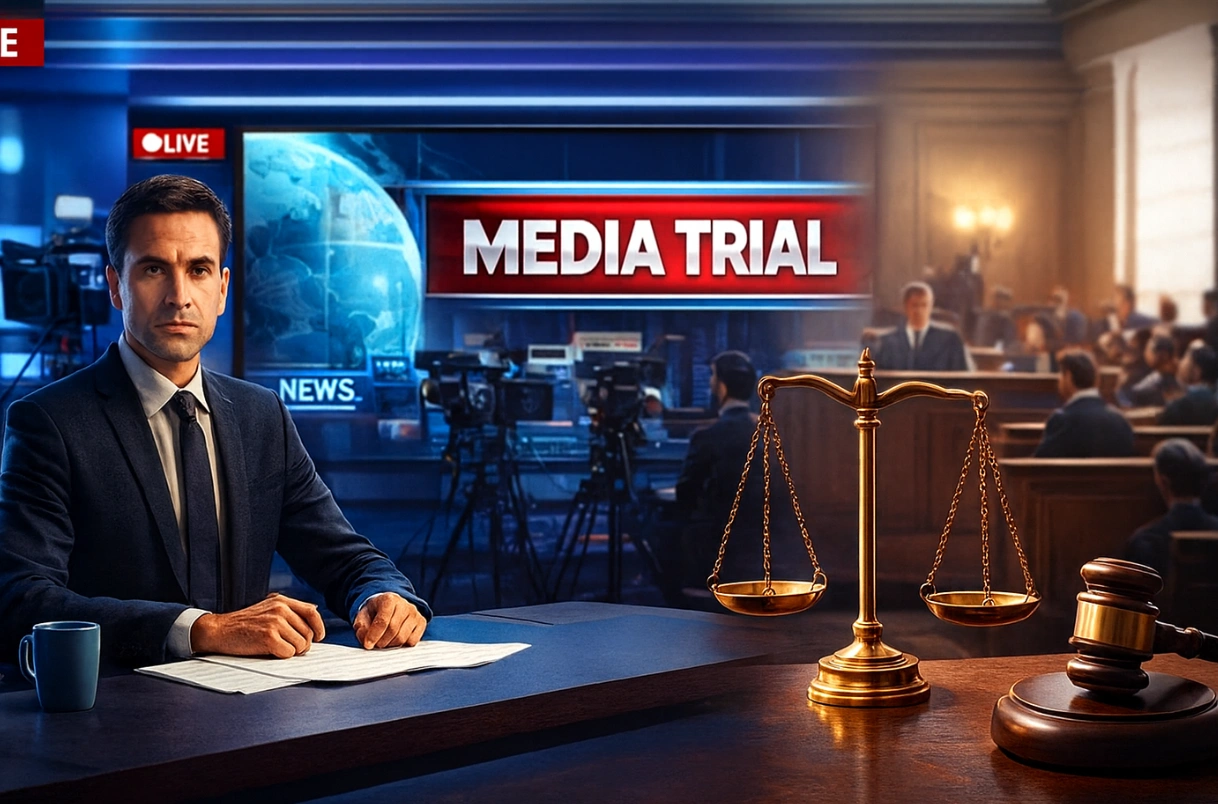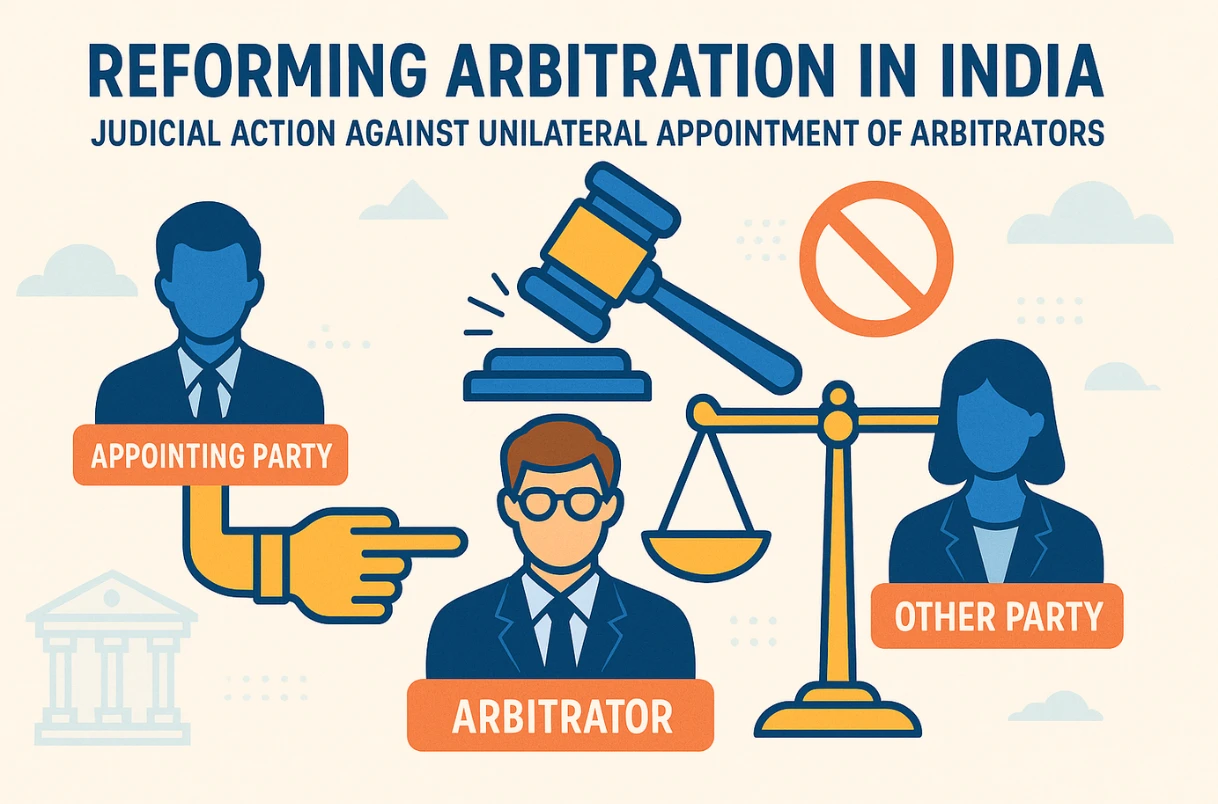Personality Rights in India: Legal Protection in the Age of AI and Identity Theft

By – Astha Sehgal and Kaushiki
Table of Contents
Introduction: The Rise of Personality Rights in the Digital Age
Personality rights refer to an individual’s right to protect the various facets of their personality from unauthorized use and exploitation.
The philosophical roots to personality rights can be traced back to the 17th century English philosopher John Locke, who in his seminal work ‘Two Treatises of Government’ famously argued that every individual has a property in their own person:
Though the Earth, and all inferior Creatures be common to all Men, yet every Man has a Property in his own Person. This no Body has any Right to but himself. The Labour of his Body, and the Work of his Hands, we may say, are properly his.
In the recent past, protection of personality rights has become a vexed legal issue with a number of celebrities such as Daler Mehndi, Amitabh Bachchan, Anil Kapoor, Jackie Shroff, Rajinikanth etc. seeking judicial intervention seeking injunctions against unauthorized use of elements of their personality, especially for commercial gain. The courts have consistently granted injunctions in such matters, basis the idea that personality rights protect an individual’s dignity and economic value associated with their identity. The idea is to ensure that one’s fame or popularity is not unfairly exploited to someone else’s undue advantage.
This issue assumes even more significance in today’s hyper-digital world, where images go viral, voices are cloned, and artificial intelligence now allows creating digital versions of people with uncanny similarities. With this, the line between what is real and fake often gets blurred. The issue of personality rights is evolving into an important field of law in India with the proliferation and democratization of editing technologies and the rise of social media.
What Are Personality Rights and Why Do They Matter?
In order to fully comprehend the scope of personality rights in India, it is essential to understand the concept of ‘personality’. Personality is what makes each person unique. It includes physical features like one’s face or voice, personal traits such as your attitude and behavior, and the way you present or express yourself.
In this context, personality rights are a gamut of rights and legal claims based on the ownership of an individual with all aspects of their personality. As commonly understood, personality rights encompass two aspects- the right to publicity and the right to privacy. While the right to privacy has constitutional underpinnings and is rooted in the concept of safeguarding of basic human dignity, the right to publicity has a veritable commercial angle to it. This right recognized the inherent value and marketability of one’s personality (often in the case of celebrities and popular individuals) and prevents others from unlicensed or unauthorized use of name, image, likeness, voice, signature, or other distinctive traits for profit. In simple words, publicity rights postulate proprietary interest in one’s identity and personality allowing famous personalities complete commercial control over the same.
It must be noted that ‘personality rights’ and ‘publicity rights’ may be used interchangeably, since the commercial facet of personality tends to assume higher salience and injunctive reliefs are usually sought when there exists an element of unauthorized commercial exploitation.
Therefore, in essence, the publicity right is about controlling commercialization, whereas the privacy aspect is about personal autonomy and dignity. Both economic and dignitary aspects complement each other in ensuring all round protection of one’s personality interests.
Legal Foundations of Personality Rights in India
It is noteworthy that India does not yet have a standalone statute that recognizes and protects personality rights. Instead, the Indian legal framework has developed through judicial interpretation, primarily employing privacy rights under Article 21 of the Constitution of India and principles of common law, tort law and intellectual property rights.
Constitutional Protection under Article 21
Article 21 protects our right to life, not just to exist, but to live with dignity, privacy, and respect. Over the years, courts have expanded its meaning to include the right to control one’s identity. Whether it’s your name, face, voice, or any trait that makes you misuse without consent can violate this fundamental right.
The right to privacy was first substantively recognized by the Supreme Court in Auto Shankar case1. wherein it addressed the conflict between personality rights and the freedom of the press. The Supreme Court held that the right to privacy is an integral part of the right to life under Article 21 of the Constitution. It further ruled that publishing a person’s life story without its consent constitutes a violation of their privacy, unless the content is part of the public record or public interest. This landmark ruling laid the foundation for personality rights in India.
Similarly, in. Puttaswamy case2, a nine-judge bench of the Supreme Court unanimously held that the right to privacy is a fundamental right protected under Article 21 of the Constitution. The Court affirmed that privacy is central to human dignity, personal autonomy, and freedom of the individual. This judgment furthered the jurisprudence on personality rights, strengthening an individual’s legal claim to control how their identity, including name, image, and personal information, is accessed or exploited in public and commercial domains.
Furthermore, in ICC case3, the Delhi High Court clarified that the right of publicity has evolved from the right of privacy and unauthorized commercial use of a person’s identity (e.g., name, image, likeness) without consent was held to violate both Article 19 (freedom of expression) and Article 21 (right to life and dignity).
Common Law and the Right of Publicity
The common law notion of publicity emanates from the idea that one exercises complete ownership over one’s personality to the exclusion of others. The common law origins of right to publicity were recognized in Amitabh Bachchan case4. In this case, the court relied upon the observations in Haelan Laboratories v. Topps Chewing Gum and recognized the right to publicity as property interest in personal rights, independently of the right to privacy. Expanding on the exclusively economic nature of the right to publicity, it was further held that “the right to control commercial use of human identity is the right to publicity”.
Similarly, the Delhi High Court in the Daler Mehndi case5, the Delhi High Court observed that the distinct and popular persona of Daler Mehndi was a quasi-property right meant to protect the economic value associated with identity. The court also relied on the landmark decision of the New York District Court in Muhammad Ali case6 wherein it was held that the distinctive aspect of the common law right of publicity is that it recognizes the commercial value of the picture or representation of a prominent person or performer and protects his proprietary interest in the profitability of his public reputation or persona.
Apart from the above, the legal rights asserted by the owners of personality rights also include the common law right against passing off, misappropriation, false endorsement and unfair competition. Here, the right to publicity is framed within tort principles, recognizing the harm to the individual’s proprietary interest in their fame and reputation.
Intellectual Property Statutes and Personality Rights
The current Indian legal framework provides limited but significant protection for personality rights through existing intellectual property statutes, notably the Copyright Act, 1957 and the Trademarks Act, 1999. Key provisions relevant to personality rights under these laws are highlighted below.
The Copyright Act, 1957
Primarily aimed at protecting creative works, it also extends certain protections to aspects of an individual’s personality associated with authorship and performance. It grants authors and performers exclusive control over the reproduction, adaptation, and public dissemination of their works, thereby offering indirect safeguards for their identity and public persona.
Section 57 recognizes the moral rights of authors, which include the right to claim authorship of a work and the right to restrain or claim damages against any distortion, mutilation, or modification that would prejudice their honour or reputation. For performers, Section 38 establishes their ownership over performances and grants them sole control over the recording and reproduction of those performances. This is further reinforced through Section 38A, which provides performers with exclusive rights, and Section 38B, which grants them moral rights, like those provided to authors. Additionally, Sections 17, 39, and 52 provide broader protection that may support personality-linked claims, especially where the identity or integrity of the creator is at stake. Though the law does not explicitly define or protect “personality rights,” its provisions collectively aim to safeguard the creative identity and reputation of individuals engaged in artistic and expressive professions.
The Trade Marks Act, 1999
This act, though not explicitly designed to protect personality rights, offers an indirect legal mechanism for their enforcement, such as Section 2(m) wherein elements of personal identity such as names, signatures, voices, and even distinctive mannerisms may qualify as trademarks, thereby preventing unauthorized commercial use without consent.
Additionally, the common law remedy of passing off, recognized under Section 27, serves as a powerful legal tool to protect an individual’s reputation and goodwill from misrepresentation or exploitation. This doctrine is triggered when an individual’s identity is misused to imply false endorsement or association, causing commercial / economic benefit to another.
Key judgments and developments
Amitabh Bachchan case
In this case, the defendants had put up hoardings all over the city of Muzzafarnagar in Uttar Pradesh, illegally depicting Mr. Amitabh Bachchan and Mrs. Jaya Bachchan as the endorsers of defendants’ jewellery. The said hoardings put by the defendant were exact copies of the hoardings erected for promoting TANISHQ jewellery, of which Mrs. and Mr. Bachchan were brand ambassadors.
Other than reiterating the principles of law expounded in Playgirl case and Daler Mehndi case, the Delhi High Court significantly listed out the following basic elements comprising the liability for infringement of the right to privacy:
- Validity- i.e., the individual claiming illegal use of his personality rights must own an enforceable right in the identity or persona of a human being.
- Identifiability- i.e., the celebrity must be identifiable from defendants unauthorized use Infringement of right of publicity requires no proof of falsity, confusion, or deception, especially when the celebrity is identifiable. The right of publicity extends beyond the traditional limits of false advertising laws.
As far as the method for proving identification was concerned, it was held that if the plaintiff is a very well-known and widely recognized celebrity a simple comparison of the defendant’s use and the plaintiffs identifying features may itself be sufficient to create a strong inference of identifiability. This is termed as unaided identification. In the alternative, the court suggested other methods that may be used to prove identification such as:
- Evidence of several elements in the context of defendant’s use which add up at a geometric rate to point to the plaintiff.
- Direct or circumstantial evidence of the defendant’s intent to trade upon the identity of the plaintiff, from which identifiability can be presumed.
Anil Kapoor case7
The Delhi High Court, in this case addressed key issues while granting interim relief to veteran actor Anil Kapoor against the unauthorized use of his name, image, voice, likeness, signature, and the popular phrase “Jhakaas”. The infringements included AI-generated videos, manipulated images, unlicensed merchandise, and domain names like www.anilkapoor.com, all used without consent.
The Court recognized a broad scope of personality rights to include voice, gestures, manner of speaking, and expressions and held that the misuse of these elements without consent infringes not only intellectual property but also fundamental rights under Article 21 of Indian Constitution, including the right to privacy and dignity.
It was further observed that while free speech is protected in the form of news, satire, parody, or criticism, when such use crosses the line and results in tarnishment, blackening, or jeopardizing a person’s identity or reputation, it becomes unlawful.
Jackie Shroff case8
The Delhi High Court heard a significant case where actor Jackie Shroff sought protection of his personality and publicity rights, alleging infringement through unauthorized use of his name and registered trademarks i.e. ‘BHIDU’, ‘Bhidu ka Khopcha’, and ‘JACKIE SHROFF’ and also unauthorized use of his image, voice, and persona. He pointed out that various entities were misusing his identity on social media, through AI-generated content, deepfakes, and even on merchandise like T-shirts and posters, all without his consent for commercial gain.
The Court affirmed the plaintiff’s right to regulate the commercial use of his identity, observing that unauthorized exploitation could harm his reputation and cause financial setbacks, particularly by impacting future endorsement opportunities. Consequently, the Court granted an interim injunction, prohibiting the defendants from using his name, voice, image, and nicknames (including “JACKIE” and “JAGGU DADA”) without consent, and directed online platforms to take down all infringing content.
Importantly, the court refused to grant ex-parte ad-interim injunction against the creator of ‘Thig Life’ style videos of Jackie Shroff on social media. It was held that the videos represented artistic expression which not only created economic value for the creator but also employment for young individuals. It was pertinently observed that restricting such creative content can have far reaching consequences including stifling of freedom of speech. This observation is highly critical in balancing the commercial interests in one’s personality and others’ freedom of speech and artistic expression.
Arun Jaitely case9
In this case, the Delhi High Court dealt with a dispute concerning the domain name www.arunjaitley.com, registered by a third party without the consent. It was argued that “Arun Jaitley,” though a personal name, had acquired distinctive character and source-indicating value due to his public stature, making it protectable under the Trade Marks Act, 1999.
It observed that Mr. Arun Jaitley’s name, owing to its unique composition and the plaintiff’s prominence in diverse fields including politics, advocacy, leadership, etc. had transcended mere personal identification and attained the status of a well-known personal mark under trademark law and that due to its peculiar nature and distinctive character, the name “Arun Jaitley” had acquired significant source-identifying value, thereby entitling the plaintiff to restrain others from unjustified use of the name. The unauthorized registration and offer to sell www.arunjaitley.com was held to be cybersquatting, passing off, and a violation of personality rights, misusing the goodwill tied to the person’s identity.
Conclusion
In the absence of a dedicated statute, personality rights in India remain grounded in scattered legal provisions and judicial pronouncements, often drawing from constitutional protections like Article 21, as well as intellectual property laws. While courts have taken and are taking proactive steps in recognizing these rights, the current framework lacks consistency, clarity, and enforceability.
There is a need to amend existing laws to recognize attributes like name, likeness, voice, and image as protectable interests, criminalize unauthorized deepfakes, ensure consent-based use of personal identity, and provide effective remedies for violations.Strengthening the Copyright Act, 1957 and the Digital Personal Data Protection Act to include AI-generated content can further protect individuals from exploitation.
As digital spaces continue to grow, so must our laws, to ensure that every person, not just public figures, has control over their own identity, because when your identity can be stolen with a click, defending it becomes a battle you can’t afford to ignore.
FAQs
-
What are personality rights in India?
Personality rights safeguard an individual’s name, image, voice, and likeness from unauthorized commercial use. In India, they are primarily recognized under the right to privacy, especially for public figures and celebrities.
-
Why are personality rights important in the digital age?
With content going viral and AI enabling deepfakes, personality rights are critical to protect individuals from identity misuse, commercial exploitation, and damage to dignity.
-
How are personality rights protected in India?
Personality rights are protected through Article 21 of the Constitution (right to privacy) and enforced via judicial remedies like injunctions and damages. They are also supported by trademark and copyright laws.
-
What are the key judicial rulings related to personality rights in India?
Important rulings include R. Rajagopal v. State of Tamil Nadu (1994) and Puttaswamy v. Union of India (2017), which recognized privacy as a fundamental right. In ICICI Bank v. Arvee Enterprises (2006), publicity rights were affirmed. Most recently, Anil Kapoor v. Simply Life India (2023) expanded protection to voice, gestures, and expressions under both privacy and IP law.
-
What is the relationship between privacy rights and personality rights in India?
Personality rights are viewed as an extension of privacy rights under Article 21. While privacy ensures personal dignity and autonomy, personality rights focus on controlling the commercial use of identity.
-
Can a person’s name or likeness be used commercially without consent in India?
No. Unauthorized commercial use of one’s name, image, or likeness violates privacy, publicity rights, and may also infringe trademark or copyright laws, even without a dedicated statute.
-
How does AI affect personality rights and privacy in India?
AI technologies like deepfakes and voice cloning can violate personality rights by replicating personal traits without consent. This creates legal gaps around consent, misuse, and digital identity protection.
-
What legal actions can be taken if personality rights are violated?
Affected individuals can file civil suits seeking injunctions or damages. They can also seek remedies under privacy, copyright, and trademark laws to prevent further misuse.
-
Do personality rights apply only to celebrities in India?
No. While enforcement is more common among celebrities due to commercial stakes, personality rights apply to all individuals.
-
How can an individual protect their personality rights in India?
By pursuing legal action against unauthorized use, relying on Article 21 protections, and invoking applicable IP laws for misuse of personal identity or likeness.
References
- R. Rajagopal v. State of Tamil Nadu[1994 SCC (6) 632]
- Justice K.S. Puttaswamy (Retd.) and Anr. v. Union of India and Ors [2019 (1) SCC 1]
- ICC Development (International) Ltd. v. Arvee Enterprises & Ors [2003 (26) PTC 245 (Del).]
- Titan Industries v. Ramkumar Jewelers [CS(OS) No.2662/2011]
- DM Entertainment v. Baby Gift House [CS(OS) No. 893/2002]
- Ali v. Playgirl [447 F. Supp. 723 (1978)]
- Anil Kapoor v. Simply Life India & Ors [2023 SCC OnLine Del 6914]
- Jaikishan Kakubhai Saraf v. Peppy Store and Others [2024 SCC OnLine Del 3664]
- Mr Arun Jaitely vs Network Solutions Pvt. Ltd & Ors [2011 SCC OnLine Del 2660]


